当前城市:淄博[切换]
- 手机雅思无忧

扫码登录
新雅思英语作文2021 年雅思听力素材:有自闭症在校园里面生活相关内容,小编在这里做了整理,希望能对大家有所帮助,关于新雅思英语作文2021 年雅思听力素材:有自闭症在校园里面生活信息,一起来了解一下吧!

雅思阅读考试需要做好万分准备,那么雅思阅读模拟题目有哪些呢?想必是不少出国人士比较关心的问题,和一起来看看2021年雅思阅读模拟题目:time to cool it,欢迎阅读。
2021年雅思阅读模拟题目:time to cool it
Dec 13th 2006
From The Economist print edition
1 REFRIGERATORS are the epitome of clunky technology: solid, reliable and just a little bit dull. They have not changed much over the past century, but then they have not needed to. They are based on a robust and effective idea--draw heat from the thing you want to cool by evaporating a liquid next to it, and then dump that heat by pumping the vapour elsewhere and condensing it. This method of pumping heat from one place to another served mankind well when refrigerators' main jobs were preserving food and, as air conditioners, cooling buildings. Today's high-tech world, however, demands high-tech refrigeration. Heat pumps are no longer up to the job. The search is on for something to replace them.
2 One set of candidates are known as paraelectric materials. These act like batteries when they undergo a temperature change: attach electrodes to them and they generate a current. This effect is used in infra-red cameras. An array of tiny pieces of paraelectric material can sense the heat radiated by, for example, a person, and the pattern of the array's electrical outputs can then be used to construct an image. But until recently no one had bothered much with the inverse of this process. That inverse exists, however. Apply an appropriate current to a paraelectric material and it will cool down.
3 Someone who is looking at this inverse effect is Alex Mischenko, of Cambridge University. Using commercially available paraelectric film, he and his colleagues have generated temperature drops five times bigger than any previously recorded. That may be enough to change the phenomenon from a laboratory curiosity to something with commercial applications.
4 As to what those applications might be, Dr Mischenko is still a little hazy. He has, nevertheless, set up a company to pursue them. He foresees putting his discovery to use in more efficient domestic fridges and air conditioners. The real money, though, may be in cooling computers.
5 Gadgets containing microprocessors have been getting hotter for a long time. One consequence of Moore's Law, which describes the doubling of the number of transistors on a chip every 18 months, is that the amount of heat produced doubles as well. In fact, it more than doubles, because besides increasing in number, the components are getting faster. Heat is released every time a logical operation is performed inside a microprocessor, so the faster the processor is, the more heat it generates. Doubling the frequency quadruples the heat output. And the frequency has doubled a lot. The first Pentium chips sold by Dr Moore's company, Intel, in 1993, ran at 60m cycles a second. The Pentium 4--the last "single-core" desktop processor--clocked up 3.2 billion cycles a second.
6 Disposing of this heat is a big obstruction to further miniaturisation and higher speeds. The innards of a desktop computer commonly hit 80℃. At 85℃, they stop working. Tweaking the processor's heat sinks (copper or aluminium boxes designed to radiate heat away) has reached its limit. So has tweaking the fans that circulate air over those heat sinks. And the idea of shifting from single-core processors to systems that divided processing power between first two, and then four, subunits, in order to spread the thermal load, also seems to have the end of the road in sight.
7 One way out of this may be a second curious physical phenomenon, the thermoelectric effect. Like paraelectric materials, this generates electricity from a heat source and produces cooling from an electrical source. Unlike paraelectrics, a significant body of researchers is already working on it.
8 The trick to a good thermoelectric material is a crystal structure in which electrons can flow freely, but the path of phonons--heat-carrying vibrations that are larger than electrons--is constantly interrupted. In practice, this trick is hard to pull off, and thermoelectric materials are thus less efficient than paraelectric ones (or, at least, than those examined by Dr Mischenko). Nevertheless, Rama Venkatasubramanian, of Nextreme Thermal Solutions in North Carolina, claims to have made thermoelectric refrigerators that can sit on the back of computer chips and cool hotspots by 10℃. Ali Shakouri, of the University of California, Santa Cruz, says his are even *aller--so *all that they can go inside the chip.
9 The last word in computer cooling, though, may go to a system even less techy than a heat pump--a miniature version of a car radiator. Last year Apple launched a personal computer that is cooled by liquid that is pumped through little channels in the processor, and thence to a radiator, where it gives up its heat to the atmosphere. To improve on this, IBM's research laboratory in Zurich is experimenting with tiny jets that stir the liquid up and thus make sure all of it eventually touches the outside of the channel--the part where the heat exchange takes place. In the future, therefore, a combination of microchannels and either thermoelectrics or paraelectrics might cool computers. The old, as it were, hand in hand with the new.
对于正在备考雅思听力的同学,口语找一些雅思真题听力来听听,那么下面就和的我来看看2021 年雅思听力素材:有自闭症在校园里面生活。
雅思听力泛听内容原文:Navigating Life On Campus When You're On The Auti* Spectrum
KELLY MCEVERS, HOST:
James Carmody always knew he'd go to college. He loved learning. He worked hard.
James Carmody总是知道他会去上大学。他热爱学习。他努力工作。
And he wanted to be an environmental engineer. But he was also worried about college. James has Asperger's syndrome. It's a form of auti* spectrum disorder that can make it hard to interact with people. Sometimes James had a hard time knowing the right thing to do or say. Or he'd get really focused on a particular thing, like this time at his high school job at McDonald's.
他想成为一名环境工程师。但他也担心大学。杰姆斯有阿斯伯格综合症。这是自闭症谱系障碍的一种形式,会使人难以与他人交流。有时杰姆斯很难知道该做什么或说什么。或者他会专注于某件特定的事情,比如这次在他高中时在麦当劳的工作。
JAMES CARMODY: I remember one time when a machine was being cleaned, I wanted to learn how to clean the machine. But I didn't ask how to get help. I just went ahead and start touching buttons and, in the end, made a mess out of it. And that's a theme in how I behave. And I didn't want my condition of Asperger's to be an impediment to having a fulfilling college career.
MCEVERS: Going to college and leaving his family, meeting a lot of new people and living on his own for the first time. And this is challenging for anybody but especially for somebody with Asperger's. James wanted to talk to someone who made it through that.
CARMODY: Hello, Elizabeth.
ELIZABETH BORESOW: Hi, James.
CARMODY: How are you today?
BORESOW: I'm nervous. How are you?
CARMODY: I'm doing very well - been looking forward to this moment for months.
BORESOW: Excellent.
MCEVERS: That's Elizabeth Boresow. She graduated with a bachelor's degree in music therapy from the University of Kansas in 2021. And she's also on the auti* spectrum. We connected her with James for our series Been There. And when they talked, James had just arrived for his freshman year at the State University of New York College of Environmental Science and Forestry in Syracuse.
CARMODY: I'm really having all my time in college so far. I've made a few social blunders already - nothing catastrophic. I just sometimes antagonize people for no good reason. I try to do what I want to do instead of what I've agreed to do. And as a result, I'll end up looking like a joke.
BORESOW: Well, one thing I like to do is - I decided that it was more important to me to spend time with people than they get to do what I wanted. Because if not, you spend a lot of time by yourself. So even though I didn't always have the same idea of fun as everyone else, I spent time going and walking around stores with people, even though I think that's really boring.
CARMODY: Yeah, it sounds like you really made himself as available as possible.
BORESOW: Yeah. You know, you talked about social blunders. I have quite a few of them myself. You know, I learned from experience not to ask, can I pet your baby? I learned to ask, can I rub your baby's back?
CARMODY: Yeah.
BORESOW: So how are you doing this semester?
CARMODY: I'm doing all right. I haven't done as well as I hoped to. That's mainly because I didn't prepare myself as well as I could have.
BORESOW: Yeah. When I was in college, I had to talk to my teachers about accommodations. Have you had to do that?
CARMODY: I considered it. I've never really needed accommodations in high school.
I'm going to see how I deal with this first semester and see if college really is so demanding that I'll need more support.
BORESOW: You definitely have to remember that the style of teaching changes a lot.
And also, it's more your responsibility. You don't have a whole team of support that comes and gets together around the same table and says, how are we going to make sure James succeeds, you know?
Even if you don't need as much accommodations, I enjoyed knowing that I had them in place. And it wasn't that I needed necessarily help with the coursework as much. I had teachers help me when they assigned a group project because they would just say, find a group of two or three and do the assignment. I had trouble initiating getting a group together. So one of my accommodations was that a teacher would help me find a group. There's lots of accommodations that you can use if you figure out how to talk about your disabilityor challenges.
CARMODY: I know, but I want to push myself...
BORESOW: You're determined. I hear you. That's awesome.
CARMODY: Yeah. I read the textbook. And I pursue knowledge on my own.
BORESOW: So I think what you just got to do is give yourself permission to ask, you know? There's nothing wrong from learning from your professors. And there's really nothing wrong from learning from other people at your work or that you live with.
Like, I just don't get stuff sometimes, and I have to ask. And I can learn from other people telling me. And I think it's OK for you to figure things out by asking.
CARMODY: It can help. But a lot of things in life I've wanted an explanation to do.
Take laundry. I am terrible at folding my laundry. It just never clicks in my mind how to do it, no matter how often I explained or shown to me.
BORESOW: You know, that's a good point. There are certain things that no matter how many times you try I feel like I just don't get. Like, I get lost on a regular basis in places that are familiar. And so what I did was I took meticulous notes on how to enter the building, where I needed to my badge, how to navigate to the classroom. So maybe if being shown how to fold clothes isn't enough, maybe if it's pictures or maybe it's just a work-around solution of folding clothes is hard, so I'm going to hang them up instead.
CARMODY: Yeah.
BORESOW: But there's a way around.
MCEVERS: That was Elizabeth Boresow who graduated college in 2021 talking to college freshman James Carmody. They're both on the auti* spectrum. And they got together for our series Been There. If you want advice about a big change in your life, email us at nprcrowdsource@ and put Been There in the subject line.
雅思听力高频词汇
semester 学期
permission 许可
Navigate 导航
made it through 通过了
living on his own 靠自己生活
initiate 启动
hang up 挂断
fulfill 完成
freshman 大一新生
folding clothes 折叠衣服
figure out 找出
disorder 混乱
coursework 课程
catastrophic 灾难性的
blunders 错误
对于4月7号考完雅思的同学们,肯定第一时间就想了解自己的成绩吧,那么今天就和的我一起来了解一下2021年4月7日雅思写作真题解析。
小作文:地图题
题目:图片上半部分是一个博物馆南半边2008年的图,下半部分是2021年的图,对比这两年的变化。
大作文:
Some people think the most important thing about being rich is that give person an opportunity tohelp other people. To what extent do you agree or disagree?
一些人认为富有的最重要的事情是使人有机会去帮助别人。你在多大程度上同意或者不同意这种观点?
解析:
这道题目是大家比较常见的同意与否类题型,我们可以按照该题型的写作框架来进行写作。
首先,开头段背景介绍,引入话题,并且表明自己的观点。我们可以选择同意或者不同意的立场。
接下来,在主体段中我们就需要给出充分的理由来支持论证我们的立场。比如,我们选择同意立场,那么我们就可以说,有钱可以使人更好地满足各种需求,比如各种物质需求,但是精神需求是更为重要的。
帮助别人能够使人从中获得极大的满足感和成就感,获得精神愉悦。而且,帮助别人不仅使自己的人生更有意义,还能收获别人的尊重和认可。
当然,我们也可以持反对立场,比如,并不是只有有钱才能够去帮助别人,并不富裕的人也能够做一些力所能及助人为乐的事,比如旧衣物捐赠、支教等。
或者,个人认为有钱最重要的事情是能够过更舒适的生活,能够更多线下时间陪伴家人等等,言之有理即可。
主体段论证之后需要进行让步并给出总结,综上所述,我同意或者不同意这种观点。
以上就是新雅思英语作文2021 年雅思听力素材:有自闭症在校园里面生活全部内容了,了解更多相关信息,关注雅思无忧。
雅思培训 雅思小作文范文-柱状图-各地房价(雅思作文饼图和柱状图的区别)
雅思小作文范文-柱状图-各地房价(雅思作文饼图和柱状图的区别)
雅思小作文范文-柱状图-各地房价Thebarchartillustratesthefluctuati
昨天 02月22日 03:45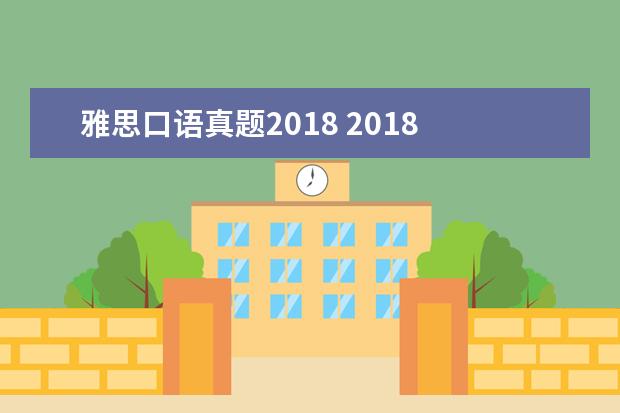 雅思口语真题2018 2018 年雅思听力素材:有自闭症在校园里面生活 - 百...
雅思口语真题2018 2018 年雅思听力素材:有自闭症在校园里面生活 - 百...
雅思考试主要是通过对考生听、说、读、写四个方面英语能力的考核,综合测评考生的英语沟通运用能力,实现“
2023年09月06日 04:57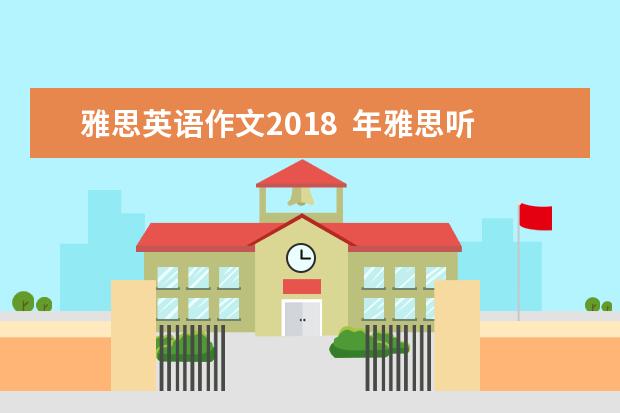 雅思英语作文2018 年雅思听力素材:有自闭症在校园里面生活
雅思英语作文2018 年雅思听力素材:有自闭症在校园里面生活
2018年4月14日雅思写作真题回忆解析上一次的雅思考试已经结束了,但是后面又要考试的考生是不是对于
2025年04月21日 05:20 4月7日雅思写作真题解析( 年雅思听力素材:有自闭症在校园里面生活)
4月7日雅思写作真题解析( 年雅思听力素材:有自闭症在校园里面生活)
2018年4月7日雅思写作真题解析对于4月7号考完雅思的同学们,肯定第一时间就想了解自己的成绩吧,那
2025年01月29日 20:11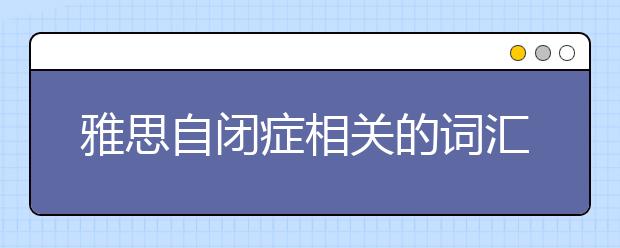 雅思自闭症相关的词汇
雅思自闭症相关的词汇
雅思词汇雅思考试中是十分重要的,今天小编就给大家整理了雅思自闭症相关的词汇,一起来学习和提高吧!更多
2021年08月09日 15:47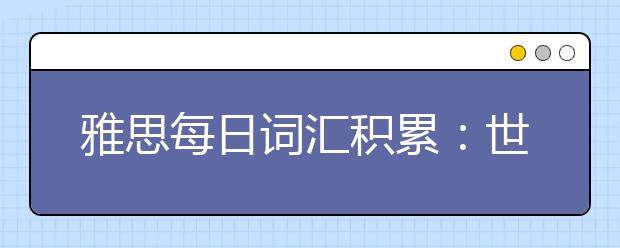 雅思每日词汇积累:世界自闭症日
雅思每日词汇积累:世界自闭症日
以下是新东方在线雅思网给大家整理的雅思每日词汇积累:世界自闭症日,帮助大家更好的备考雅思考试,祝愿各
2021年08月11日 08:42 每日雅思词汇:自闭症如何说
每日雅思词汇:自闭症如何说
雅思考试主要是通过对考生听、说、读、写四个方面英语能力的考核,综合测评考生的英语沟通运用能力,实现“
2022年11月29日 09:52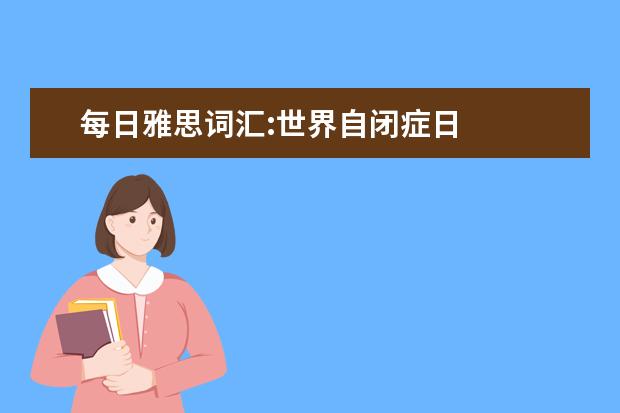 每日雅思词汇:世界自闭症日
每日雅思词汇:世界自闭症日
雅思考试主要是通过对考生听、说、读、写四个方面英语能力的考核,综合测评考生的英语沟通运用能力,实现“
2022年12月02日 12:32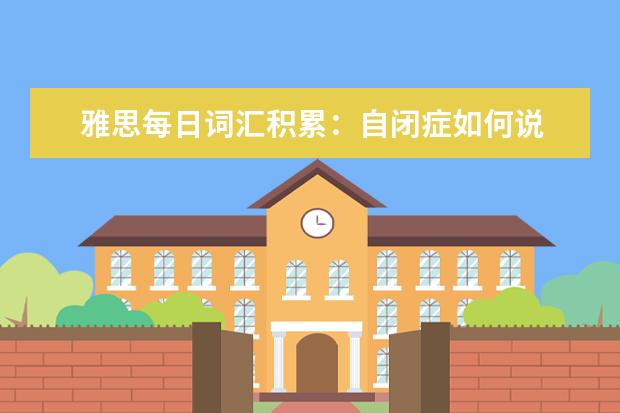 雅思每日词汇积累:自闭症如何说
雅思每日词汇积累:自闭症如何说
雅思考试主要是通过对考生听、说、读、写四个方面英语能力的考核,综合测评考生的英语沟通运用能力,实现“
2023年01月15日 04:39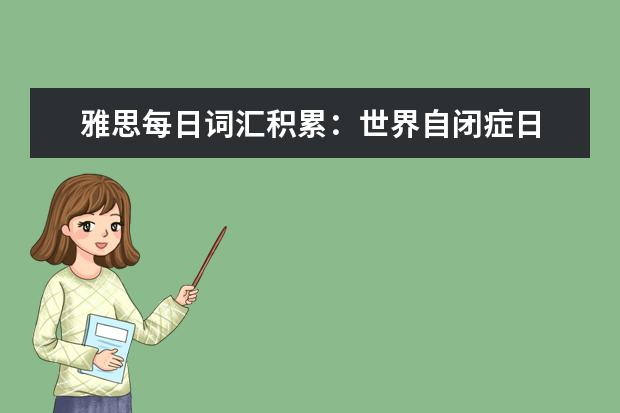 雅思每日词汇积累:世界自闭症日
雅思每日词汇积累:世界自闭症日
雅思考试主要是通过对考生听、说、读、写四个方面英语能力的考核,综合测评考生的英语沟通运用能力,实现“
2023年01月19日 01:48